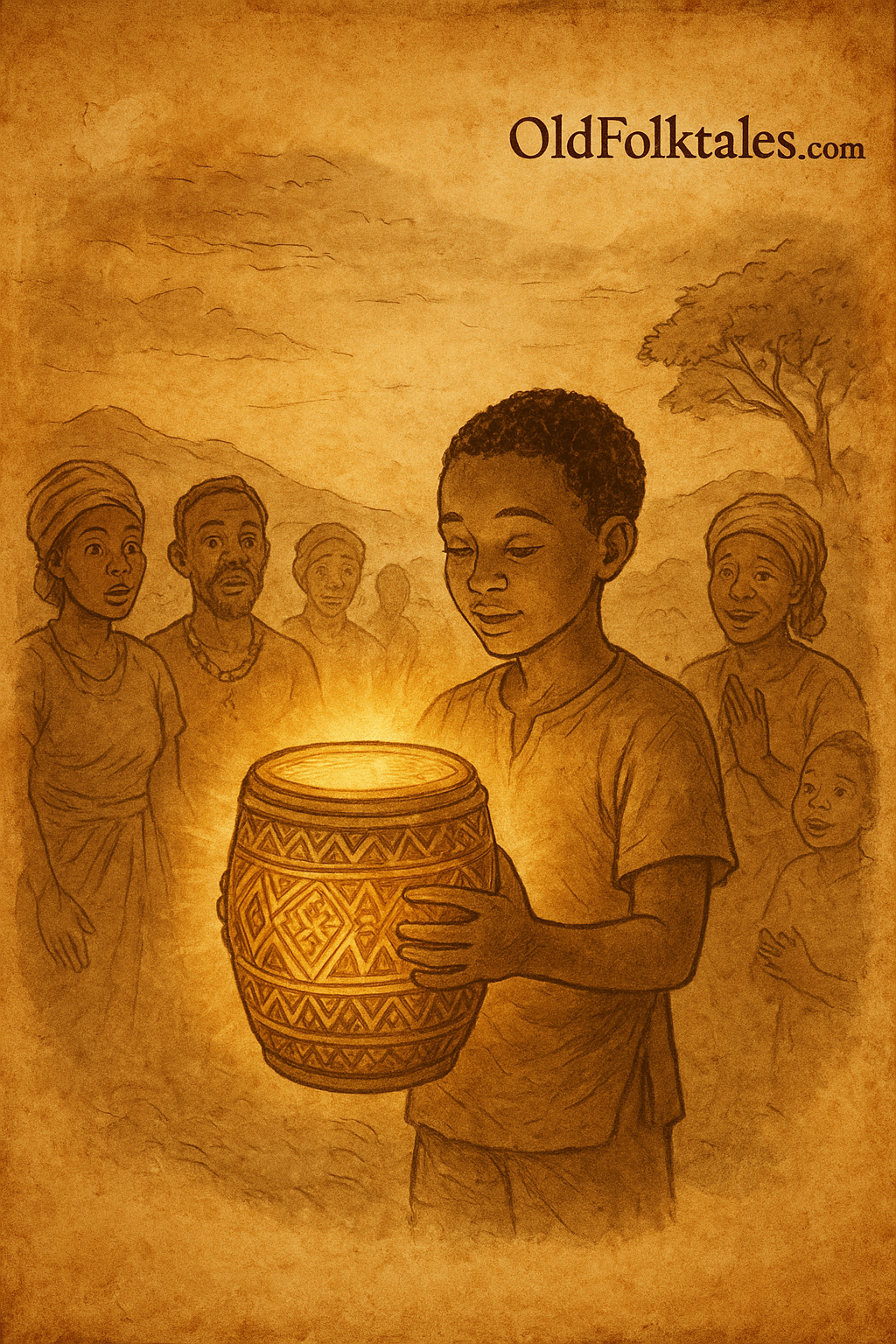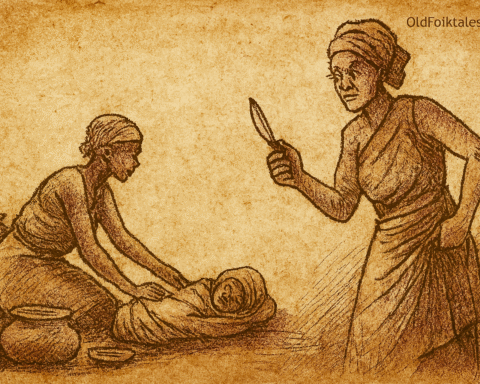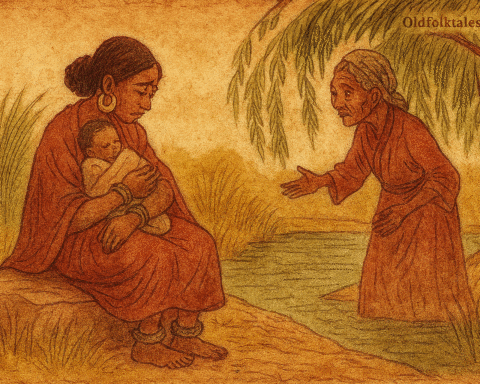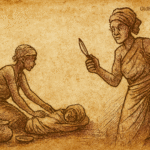Long ago, in a time of wonders, when animals spoke and rivers carried messages from the gods, there lived a powerful talking drum in an Igbo village. This drum was unlike any other. Its wooden frame was carved with sacred symbols, and its skin glowed faintly in the moonlight. When struck, its voice could travel across hills, forests, and farms. Elders said that whoever played it with truth in his heart would gain honor, respect, and blessings from the ancestors.
But the drum was not easy to please. It did not answer to wealth or strength. Instead, it waited for someone who carried humility in their soul. Because of this, many feared to approach it, and many who tried left in shame.
One morning, the elders carried the drum into the village square. A great festival was declared, for they wished the drum to choose its master at last. Drummers from nearby villages, warriors, farmers, and even noblemen gathered under the bright sun. The air filled with the scent of roasted yam, palm wine, and kola nut as people waited in excitement.
The first to step forward was Obi, a wealthy farmer. His barns overflowed with yam and cassava, and he strutted proudly as he lifted his strong arms. “Surely the drum will answer me,” he boasted. “For I can feed the village many times over.” He struck the drum with force. The crowd held its breath. But the drum remained silent. He struck again, harder this time. Still silence. Suddenly, the drum’s voice burst forth like thunder: “Greedy hands cannot command me.” Obi’s face darkened with shame, and he left the square.
Next came Ikenna, a warrior whose name was sung in many songs. His body bore the marks of battles, and his chest swelled with pride. He raised his arm and beat the drum with fierce power. Yet no sound came. Again, he tried, striking harder, until sweat streamed down his face. At last the drum spoke, “Prideful hearts cannot guide my voice.” The warrior lowered his head and walked away, humbled before all.
Then, the king’s son, Prince Ekene, stepped forward, wearing fine cloth embroidered with gold. The crowd whispered, believing the drum would surely answer a royal hand. He tapped the drum gently, then harder when no sound came. Growing impatient, he shouted, “Do you not know who I am? I am the heir to this land! You must obey me!” The drum roared back, “Those who demand respect do not deserve it.” The prince turned pale and hurried away as the villagers gasped.
The square grew quiet. No one dared step forward. Some whispered that perhaps the drum would never choose a master. Others feared it might curse anyone else who tried. The sun began to sink, and the elders prepared to end the gathering.
Just then, a young man named Chike walked into the square. His clothes were worn, and his feet were dusty. Chike was a poor drummer who owned nothing but a small djembe, which he played joyfully at weddings and markets. Though he had little, his heart was full of songs, and his laughter often brought comfort to children and elders alike.
The elders looked at him with doubt. “You are not rich, nor strong, nor noble,” one of them said. “What makes you think the drum will answer you?”
Chike bowed respectfully. “I do not know if it will answer,” he replied softly. “But I will try, not for glory, but for the love of music.”
He knelt before the drum and placed his hand gently upon its glowing skin. He whispered, “Great drum, I do not seek wealth or power. I only wish to share your music with the people, so their hearts may dance together in joy.” Then he struck the drum with a soft, steady rhythm, the kind that carried both truth and humility.
To everyone’s amazement, the drum stirred. It gave a low hum, then burst into song. Its deep voice rose and filled the square, echoing through the hills. Birds took flight, children laughed and danced, and the elders clapped their hands in wonder.
The drum spoke warmly, “At last, I have found my master. For only the humble can awaken my song.”
The people cheered, lifting Chike onto their shoulders. From that day forward, Chike became the village’s most celebrated drummer. He played not for riches, but for joy, unity, and the blessing of the ancestors. Whenever he struck the talking drum, the sound carried peace and harmony across the land. The people never forgot that it was humility, not pride, that unlocked the greatest gift.
Moral Lesson of The Talking Drum That Chose Its Master
This folktale teaches that true gifts belong only to the worthy. Wealth, pride, and power cannot unlock the deepest treasures of life. It is humility, respect, and sincerity that awaken blessings meant for the good of all. The story reminds us that those who serve with love will always be chosen by destiny.
Knowledge Check
What made the drum in The Talking Drum That Chose Its Master different from other drums?
It could speak, and it only responded to someone truly worthy.Why did the drum reject Obi, the wealthy farmer?
Because his greedy heart made him unfit to guide its voice.What lesson did the drum teach the proud warrior?
That prideful hearts could not command its song.Why was the king’s son rejected by the drum?
He demanded respect instead of earning it, which showed arrogance.How did Chike, the poor drummer, succeed where others failed?
He approached with humility and a pure wish to bring joy, not wealth or power.What is the main moral of the folktale The Talking Drum That Chose Its Master?
That blessings and gifts belong only to those who are humble and worthyCultural Origin
This folktale comes from the Igbo people of Nigeria, where drums carry deep cultural and spiritual meaning. In Igbo tradition, drums are more than instruments. They are voices of the ancestors, keepers of rhythm in festivals, and messengers that unite communities. The talking drum especially symbolizes wisdom, respect, and the power of humility.




